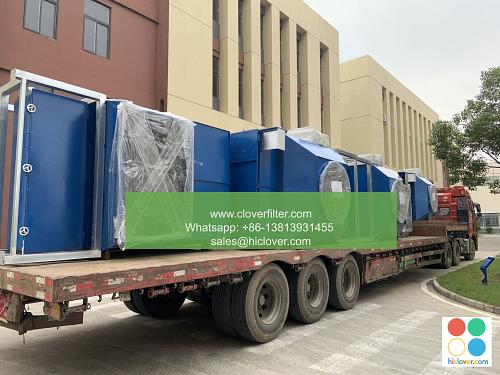Air Filter Certification: A Guide to Market Research and Analysis

As the world becomes increasingly aware of the importance of indoor air quality, the demand for air filters with certification is on the rise.
Making Sense of Air Filter Certification Standards
can be a daunting task, especially for those new to the industry. In this article, we will delve into the world of air filter certification, exploring the various types of certifications, their
Significance in Market Research and Analysis
, and the
Key Application Areas
where certified air filters are making a significant impact.
Understanding Air Filter Certification
Air filter certification is a process that verifies the performance and efficiency of air filters in removing airborne contaminants, such as dust, pollen, and bacteria. The most common certification standards for air filters include HEPA (High Efficiency Particulate Air), UL (Underwriters Laboratories), and ISO (International Organization for Standardization). These certifications ensure that air filters meet certain standards for filtration efficiency, airflow, and pressure drop.
Market Research and Analysis
Conducting thorough market research and analysis is crucial for understanding the air filter certification landscape. This involves Identifying Key Players in the industry, Analyzing Market Trends, and Assessing Consumer Needs. By examining the Competitive Landscape, businesses can determine the most effective certification strategies to adopt, while also identifying opportunities for growth and innovation.
Key Application Areas
Certified air filters have a wide range of applications across various industries, including:
* Industrial and Commercial HVAC Systems: Certified air filters are used to maintain good indoor air quality and reduce the risk of airborne contaminants in commercial and industrial settings.
* Healthcare and Medical Facilities: HEPA-certified air filters are used in hospitals, clinics, and other healthcare facilities to prevent the spread of airborne diseases and maintain a sterile environment.
* Residential and Consumer Markets: Certified air filters are used in home air purifiers and HVAC systems to improve indoor air quality and reduce allergy and asthma symptoms.
* Aerospace and Defense: Certified air filters are used in aircraft and other military vehicles to maintain air quality and prevent the spread of airborne contaminants.
* Automotive and Transportation: Certified air filters are used in vehicle air conditioning and heating systems to improve air quality and reduce the risk of airborne contaminants.
Benefits of Air Filter Certification
The benefits of air filter certification are numerous, including:
* Improved Indoor Air Quality: Certified air filters can remove up to 99.97% of airborne contaminants, improving indoor air quality and reducing the risk of respiratory problems.
* Increased Energy Efficiency: Certified air filters can help reduce energy consumption by improving airflow and reducing pressure drop.
* Enhanced Product Performance: Certified air filters can improve the performance of HVAC systems and other equipment, reducing maintenance costs and extending equipment lifespan.
* Compliance with Regulations: Certified air filters can help businesses comply with regulations and standards, reducing the risk of fines and penalties.
In conclusion, air filter certification is a critical aspect of the air filter industry, and understanding the various certification standards, market research, and analysis is essential for businesses and consumers alike. By highlighting the Key Application Areas and Benefits of Air Filter Certification, we hope to have provided a comprehensive guide to the world of air filter certification. Whether you are a business looking to improve your products or a consumer seeking to improve your indoor air quality, certified air filters are an essential component of any Indoor Air Quality Strategy. It seems like you’re ready to start a conversation or ask a question, but you haven’t provided a specific prompt yet. Please go ahead and share what’s on your mind, and I’ll do my best to assist you!

